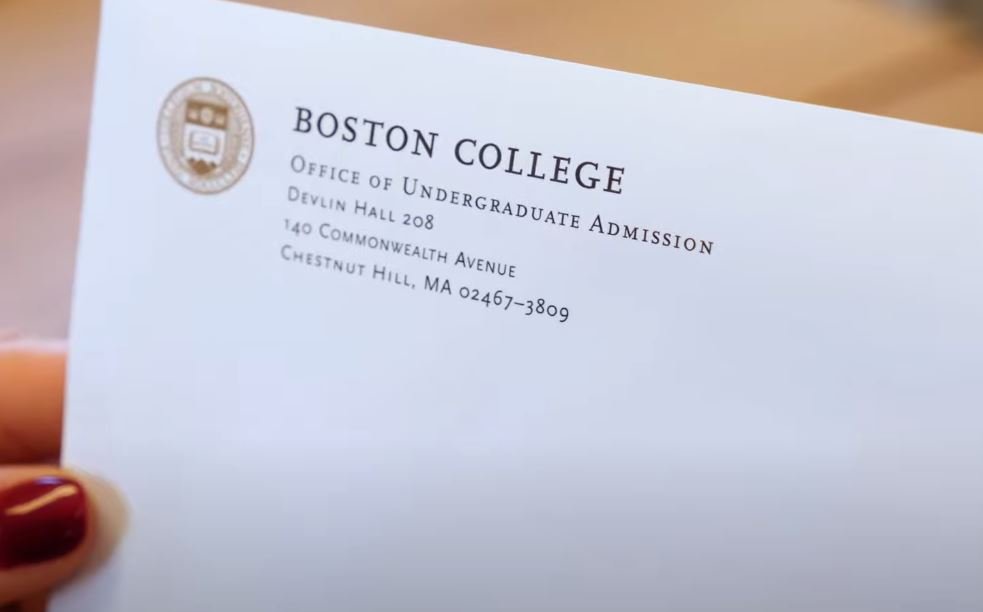
Editorial leadership at Boston College has subtly grown to be a powerful force for community connection, intellectual storytelling, and institutional voice. Under the direction of seasoned experts who have honed their skills in prestigious journals and scholarly presses, the editorial teams are producing informational and inspirational content. These editors are defining Boston College’s voice both domestically and abroad, which goes far beyond simply polishing sentences.
John Wolfson, who took over Boston College Magazine after an outstanding tenure leading editorial operations at Tufts and contributing to magazines like The Atlantic and The New Yorker, is one of the most dynamic individuals among them. Wolfson has established a narrative bridge that appeals to all generations by fusing alumni storytelling with the impact being felt on campus today. Under his direction, institutional messaging has been transformed into something profoundly human and thought-provoking with remarkable success.
Leading Boston College Editors and Roles
| Name | Title | Highlights of Role and Impact | Contact or Link |
|---|---|---|---|
| John Wolfson | Editor-in-Chief, BC Magazine | Former editor at Tufts Magazine, known for strategic storytelling across platforms | John Wolfson LinkedIn |
| Scott Kearnan | Deputy Editor | Brings cultural depth to campus narratives, known for lively, people-centered features | scott.kearnan@bc.edu |
| Elizabeth Clemente | Staff Writer | Crafts emotionally resonant stories about students, alumni, and faculty | elizabeth.clemente@bc.edu |
| Keith Ake | Art Director | Oversees visual tone of BC Magazine, known for clean and compelling design | robert.ake@bc.edu |
| Philip Altbach | Founding Editor, IHE | Global expert in higher education policy and access, CIHE pioneer | ihe.bc.edu |
| Hans de Wit | Senior Editor, IHE | Leading voice in international education research, former CIHE director | hans.de.wit@bc.edu |
| Rebecca Schendel | Associate Editor, IHE | Specializes in education equity and international development | schendelr@bc.edu |
| Chris Glass | Editor, IHE | Focuses on student mobility and the digital future of higher education | glassch@bc.edu |
| Galya Petrenko | Publishing Editor, IHE | Human rights expert, brings strong policy voice to international coverage | galyapetrenko@bc.edu |
| Sasha Smith | Publishing Editor, IHE | Focused on education and incarceration research, contributes academic copyediting | smiths@bc.edu |
Scott Kearnan, a deputy editor who has contributed a new voice to BC’s pages, is helping with this editorial mission. Kearnan, who has experience in lifestyle journalism, has a knack for pace and culture, which lends the magazine a lively, approachable tone. His depictions of Boston College-affiliated businesspeople, artists, and activists resemble those in high-end lifestyle publications, but they are always based on Jesuit principles and goals.
The magazine’s staff writer, Elizabeth Clemente, completes the core writing group. Her work, especially the frequently deeply moving alumni profiles and student journeys, reflects the emotional pulse of British Columbia. Because of its rich detail and emotional clarity, a recent article about a first-generation student navigating academic life during a pandemic left a lasting impression on readers. In addition to being emotionally intelligent, her writing is especially helpful in elevating voices that might not otherwise be heard.
Although the message is conveyed through words, Keith Ake, the magazine’s art director, makes sure the stories appear and feel consistent across all platforms. His design work turns information into experiences—visuals that bolster the story without detracting, typography that conveys tone, and spreads that captivate readers. Through the combination of storytelling and design simplification, Ake produces issues that are both timeless and modern.
The high caliber of editorial work extends beyond stories published on campuses. Thanks to the International Higher Education (IHE) publication, Boston College has emerged as a global leader in higher education discourse over the last ten years. IHE, which was started and was first directed by Philip G. Altbach, is still a premier journal for discussions about academic mobility, policy, and access. The publication that continues to have an impact on policymakers, researchers, and educational leaders worldwide was made possible by Altbach’s decades of study and analysis of global educational trends.
Hans de Wit followed Altbach’s example by focusing more intently on internationalization and extending the reach of IHE. He had a very progressive editorial vision as the former director of the Center for International Higher Education (CIHE), especially when it came to the relationship between education and global equity. Through incorporating new research and showcasing marginalized perspectives, de Wit contributed to the journal’s transformation from a policy digest to a reliable source of innovative scholarly analysis.
Editors today, such as Chris Glass and Rebecca Schendel, are carrying on that tradition. IHE benefits greatly from Schendel’s work on educational development, especially in underprivileged areas. She has provided very clear policy roadmaps in her coverage of equitable access strategies, including institutional partnerships in East Africa. In the meantime, Glass has been at the forefront of research on digital exchange programs, which are virtual mobility options that proved crucial during the pandemic and continue to be very effective substitutes for international cooperation.
IHE’s editorial direction has gained more depth in recent days thanks to the efforts of Sasha Smith and Galya Petrenko. Based in the Netherlands, Petrenko is a human rights specialist who uses her experience in policy to draw attention to urgent moral and legal issues facing European educational systems. Her work promotes academic freedom and civil society participation, especially in areas where democracy is eroding. Smith, a doctoral candidate studying the relationship between education and incarceration, contributes a distinct perspective to editorial planning that is grounded in systemic critique and personal experience.
These editors are creating publications and promoting international discussions through strategic partnerships. They guarantee that the material is both publicly available and rigorously scholarly by working with researchers, activists, and institutional leaders. This approach is especially novel in the context of university communications because it has greatly increased the impact and reach of Boston College’s editorial work.
Few universities have accomplished what Boston College’s editorial teams are doing by fusing academic integrity with professional journalism. Through their efforts, communication is being transformed into a legitimate source of thought leadership. From high-end magazine covers to academic digital publications, the tone is always the same: deliberate, moral, and goal-oriented. And that voice is becoming more and more significant not only on campus but also across borders, industries, and sectors.

